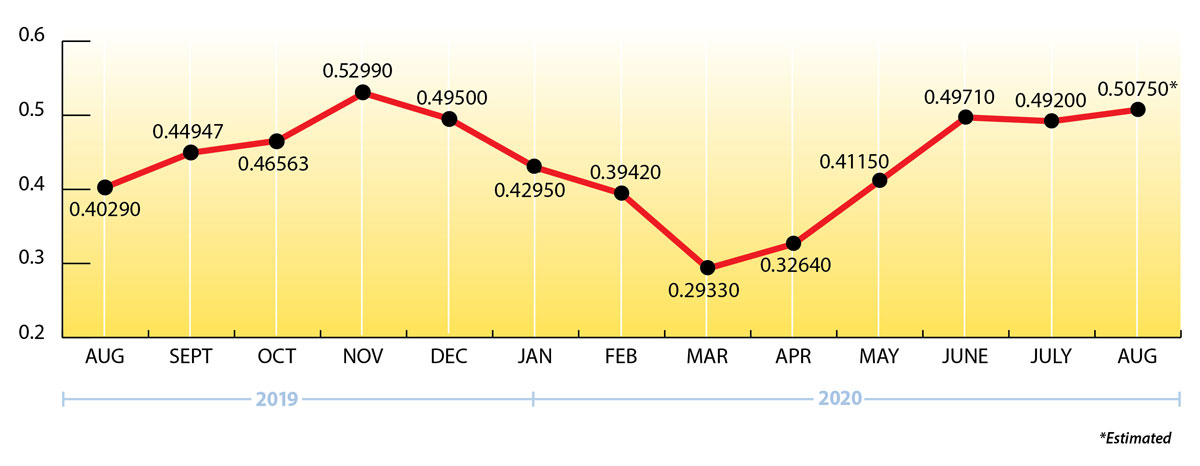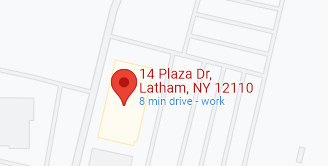Climate Bills Are Heating Up (Part I)
 Our industry is under siege.
Our industry is under siege.
Court battles for 100% renewable energy are only going to intensify, and at a quicker pace than imaginable. State constitutions are under attack by groups and legislators opposed to any form of clean, low-carbon energy. And their propaganda machines are in full swing, heavy with emotion but often light on logic and practicality.
In this month’s blog, we present the first half of our discussion with Leslie Anderson, President of the Propane Gas Association of New England (PGANE), about all of this.
Interview with Leslie Anderson (Part 1 of 2)
Heffron: Thank you, Leslie, for taking time to share some thoughts regarding climate bills. You’ve been in the trenches recently and you have a background in law, which makes you uniquely qualified to understand the legislation that’s becoming increasingly prevalent in many states.
Some states have House and Senate bills aimed at banning the installation of propane by modifying building codes. Other states have net-zero emissions petitions, fossil-fuel bans, carbon tax proposals, and new by-laws that pop up almost daily.
What are your thoughts on all of this? Is it possible to be proactive instead of reactive against this onslaught?
 Anderson: More and more it seems that our industry finds ourselves playing defense rather than offense when it comes to energy issues. The electrify-everything movement is well funded and extremely active in all the New England states. Over the last four years we have successfully fought off carbon tax legislation in each of our six states, but we have not slowed down the offense.
Anderson: More and more it seems that our industry finds ourselves playing defense rather than offense when it comes to energy issues. The electrify-everything movement is well funded and extremely active in all the New England states. Over the last four years we have successfully fought off carbon tax legislation in each of our six states, but we have not slowed down the offense.
This year in Massachusetts we are facing legislation that may ban all gas in new residential construction. We are also repeatedly fighting at the Building Codes and Standards Board where they are trying to make stretch goals that incentivize electric over propane. It’s exhausting, because it is like we are playing against the old patriot offense; they just keep changing plays and strategies while driving us back further and further.
I don’t think that we can beat them if we just keep playing defense; we need an even stronger offense.
I wish that we had started six years ago and educated our policymakers about propane’s role in the clean energy revolution so that we were now considered one of the sexy clean energies that policymakers incentivize. Imagine how many gallons we could grow if propane was on an even playing field with incentives like those that are being offered for wind, solar, and electric. As an environmentalist, I know that propane should be incentivized from a factual and scientific climate perspective, but unfortunately, we are instead lumped into the ominous “fossil fuel” crowd. This has to change!
Heffron: What’s the best way for the propane industry to ensure that propane is included as part of any clean-energy solution legislation?
Anderson: Honestly, everything that PERC (Propane Education & Research Council) puts out, should include environmental messaging. I am so proud that there is now an environmental tab on the PERC homepage. We must educate our consumers and our policymakers about the propane story.
Propane has a great story to tell, but unfortunately our propane culture is not one where we are often comfortable tooting our own horn. This must change. We need every propane office location across New England to reach out to their local state legislators and invite them for a visit where they can communicate to them about our story and our role.
At PGANE, we developed tour instructions and folders full of handouts for our members to use to communicate these messages. We also use them when we testify and when we participate in state energy days at the statehouse. As soon as it is safe to do so, I hope our members will start to invite their local state reps to visit their office and learn more about propane. We will supply the folders and tools they need.
Heffron: Should PERC and NPGA (National Propane Gas Association) put more revenue towards public awareness of the benefits of propane in terms of a clean-energy solution? And if that’s not possible, do we need to develop public awareness through a new national marketing program and campaign aimed at promoting propane as an important part of any climate solution?
Anderson: This year, both NPGA and PERC have committed to telling the environmental story. They are both beginning to develop resources that can be used, but we need this to be an ongoing commitment if the propane industry is going to continue to exist. Some may roll their eyes at this thought, but it is a real concern. Lawmakers in more and more states are setting goals to eliminate the use of our product in the heating and transportation sectors. At the same time, they are promoting electricity and battery dependent technologies.
I do believe that we need to go on the offense and attack the dichotomy of this clean electric campaign that is so reliant on battery usage. Batteries are like the spent radioactive waste of nuclear energy, and the heavy metals that are mined to supply batteries cause greater environmental harm to our most vulnerable environmental justice populations. We must tell this story and we need PERC and NPGA to assist us with the development of materials that clearly, simply, and shortly spell out these concepts.
If PERC can come up with a full fuel lifecycle analysis explanation, it would be a great new play for us to add to our offense. And if NPGA could get federal carbon labeling on all the appliances based upon the full fuel cycle, we might make it past the 50-yard line. There is much that still needs to be done, and I am hopeful that we will continue to focus on this campaign as an industry.
(Part II of our interview with Leslie Anderson, in which she discusses how to deal with state legislators and how the pandemic has affected our public awareness strategy, will be released next Wednesday, August 26.)
What’s Happening with Propane Prices?
Propane prices have been relatively flat since June, while natural gas prices have seen their largest summer price increase in 11 years.
In each of the past three years, from August to September, Belvieu propane prices have risen: .0466 per gallon in 2019, .084 per gallon in 2018, and .1295 per gallon in 2017.
Propane Price Chart

Weekly Inventory Numbers
Total US propane inventories showed a modest but surprising draw of .041 mmbbls. for the week ending August 14, 2020. That brings national inventory levels to 89.29 mmbbls., about 4 percent ahead of last year and approximately 10 percent above the five-year average.
PADD 2 (Midwest/Conway) inventories showed a build of .443 mmbbls. They currently stand at 24.81 mmbbls., roughly 2 percent behind last year.
PADD 3 (Gulf Coast/Belvieu) inventories showed a draw of .356 mmbbls. They currently stand at 52.25 mmbbls., about 6 percent ahead of last year.
The Skinny
It’s hard to add anything to Leslie’s insightful comments (and wait until you read Part II next week).
I think that winning the legislative battle starts by changing public perceptions with facts and winning over the hearts and minds of people. To effectively do that, the propane industry needs to promote propane as a clean, versatile, and affordable energy source that's deserving of being on the same "clean-energy" playing field as renewable energy or electricity.
We need to get to the place where old people like me say "Propane is pretty cool!" and young people say "Propane is dope!"
About Leslie Anderson:
Leslie Anderson is the President and CEO of the Propane Gas Association of New England (PGANE).
She has worked in the environmental, compliance, and lobbying arena for over 25 years. She began her career in the propane industry as Director of Risk and Corporate Counsel for Dead River Company overseeing compliance across Maine, New Hampshire, Vermont, and Massachusetts for 14 years. Leslie served then for two years in appointed positions in Maine state government, including leading the Bureau of Remediation and Waste Management for the Department of Environmental Protection.
In 2017, she returned to the propane industry and to lead PGANE, an 800-member trade association representing the propane industry in Connecticut, Maine, Massachusetts, New Hampshire, Rhode Island, and Vermont. Leslie is a graduate of the University of Texas and holds a master’s degree in environmental management, from the University of Houston, and a law degree from South Texas College of Law.
Get Stephen's insights on propane delivered to your inbox every month.
Sign up for our monthly newsletter here.
For more frequent updates and industry news, join us on LinkedIn.
NOTE: The views and opinions expressed herein are solely those of the author, unless attributed to a third-party source, and do not necessarily reflect the views of Ray Energy Corp, its affiliates, or its employees. The information set forth herein has been obtained or derived from sources believed by the author to be reliable. However, the author does not make any representation or warranty, express or implied, as to the information’s accuracy or completeness, nor does the author recommend that the attached information serve as the basis of any buying decision and it has been provided to you solely for informational purposes. © 2011-2020 Ray Energy Corp. All rights reserved. Any reproduction, representation, adaptation, translation, and/or transformation, in whole or in part by whatsoever process, of this site or of one or several of its components, is forbidden without the express written authorization from Ray Energy Corp.

